Every Summer I look forward to the 5th Ave street fairs for the farmer’s markets, live music, and outdoor eating. These warm Summer days invite us to be fully engaged with our neighborhood— welcoming community commitment and collaboration.
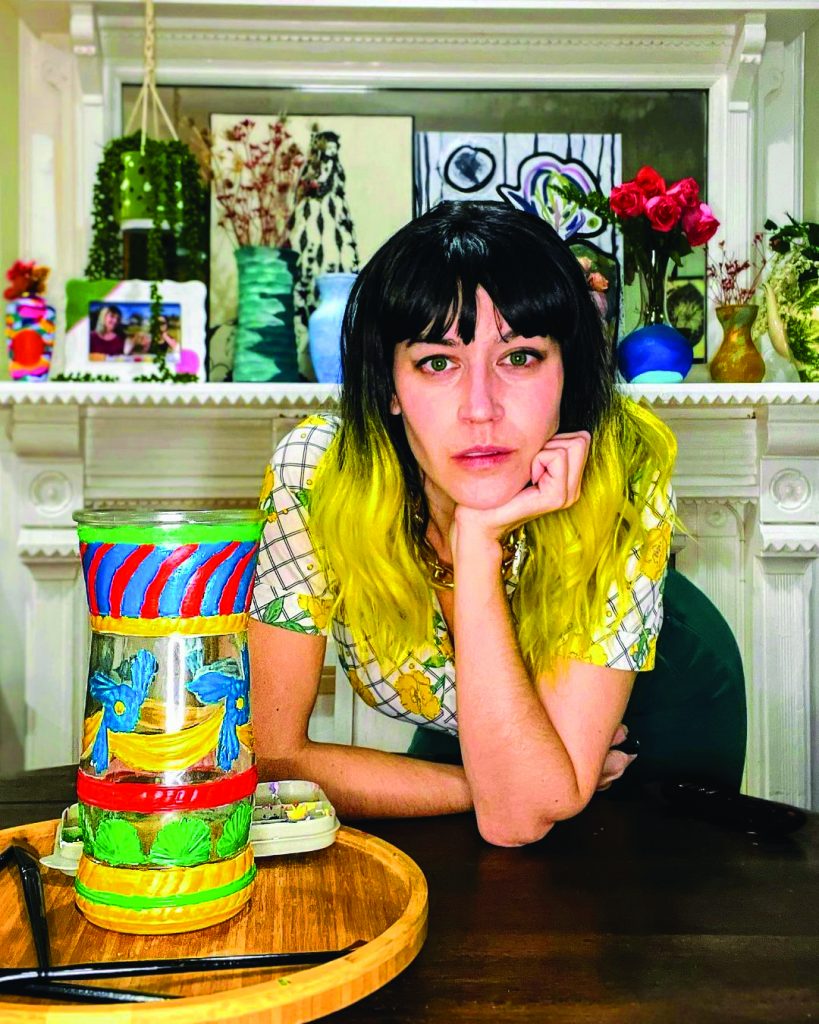
Calla Jean of Oddment Salvage 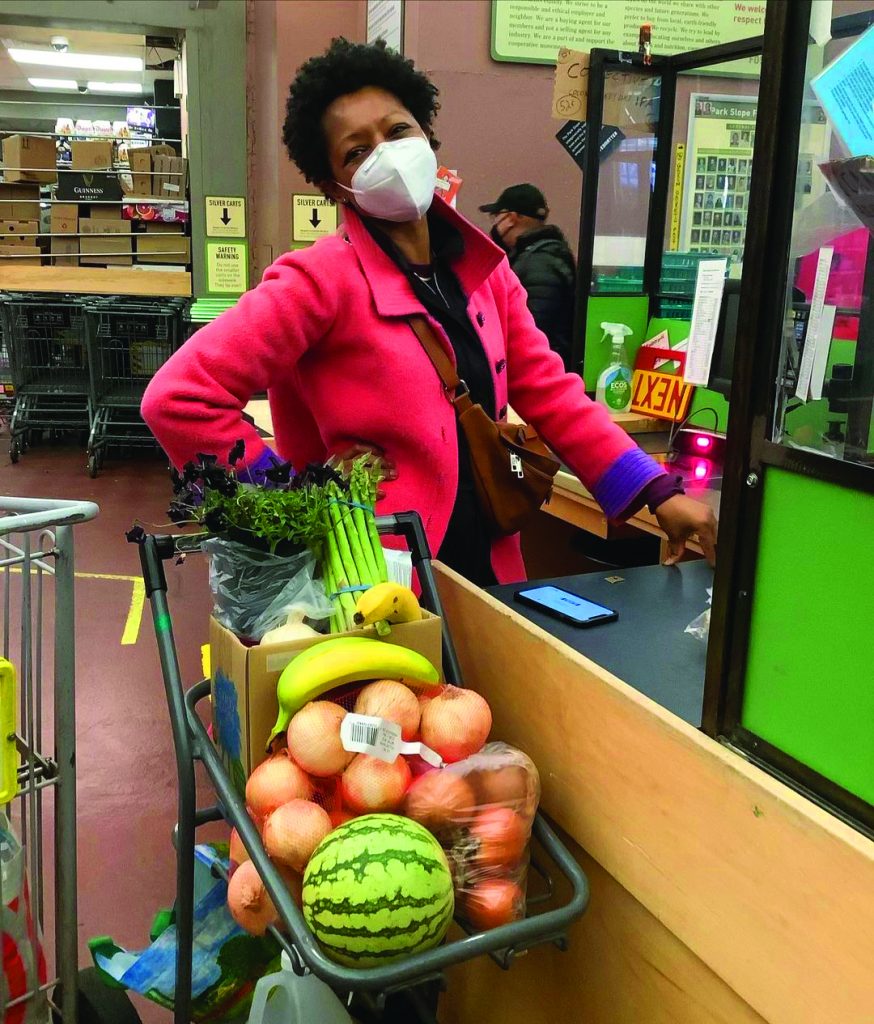
Park Slope Food Coop 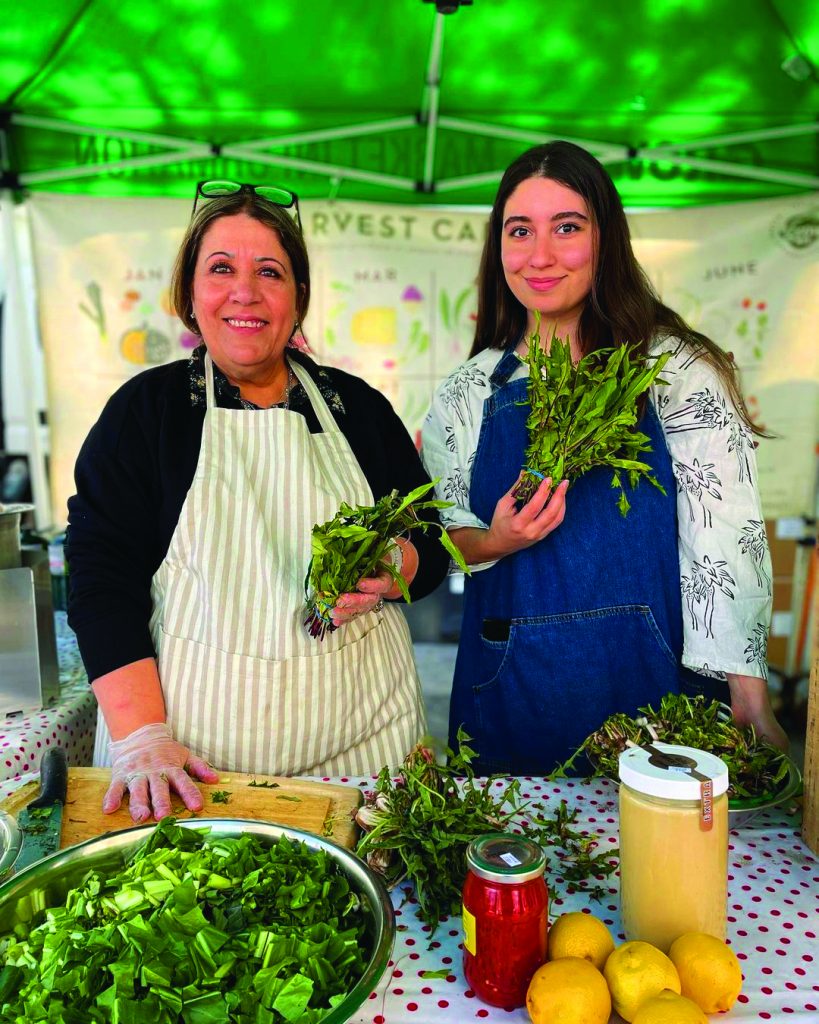
GreenMarket Park 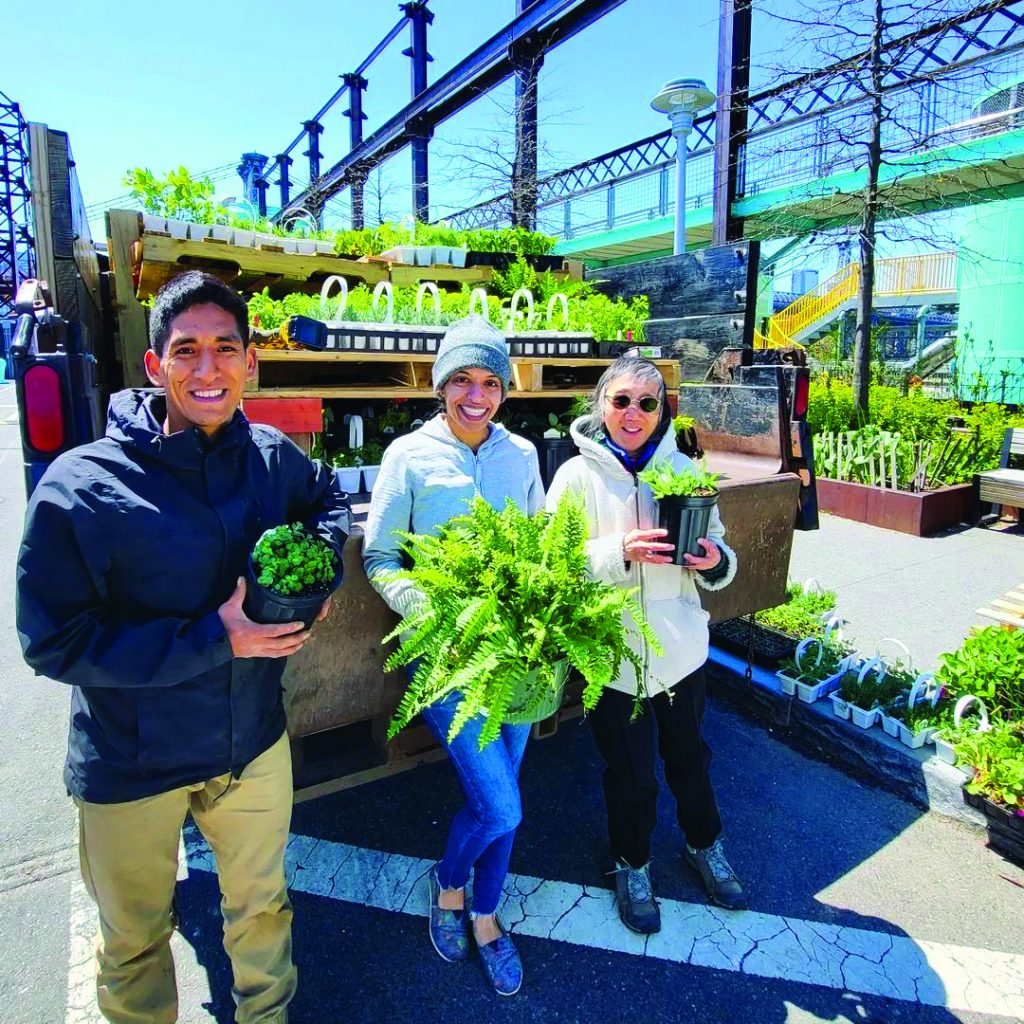
Grow NYC
The spirit of community collaboration is essential to creating a sustainable neighborhood and sustainable world. Supporting and investing in local programs that build long-term sustainability ensures that our neighborhoods care for, heal, and protect the Earth.
In the previous Spring magazine, our guide focused on ethical, environmentally conscious consumer and commercial habits, like reuse shopping, second-hand fashion, and mutual aid networks. Now we bring you ways to phase out destructive consumption.
Personally, author Tom Cox’s viral Tweet has always stuck and really shook my mindset around consumerism and materialism: “Every plastic toothbrush you have used in your life still exists.” Take a moment to really think about that… Now think that it applies to everyone in your house, everyone on your block, everyone in Park Slope, in Brooklyn, in the five boroughs, in the United States, and everyone in the world… To say the least it’s a lot of toothbrushes. Commonly toothbrushes are made from polypropylene plastic and nylon that can take up to 500 years to decompose.
We consume and throw away, “out of sight out of mind”— but our items do not disappear.
Artists and self-described dumpster diver, Calla Jean creates art and decor pieces from discarded houseware and items from the Brooklyn streets. Her artisan business, Oddment Salvage, promotes a circular economy and eliminates neighborhood waste. Calla writes, “Everything you buy is already trash… No matter what our items will outlast us by hundreds or even thousands of years as trash. Almost everything produced will end up in a landfill eventually. We need to reduce our demand for new goods and shift to reusing what we already have… You can create a model of production and consumption, which involves sharing, leasing, reusing, repairing, refurbishing, and recycling existing materials and products.”
In this Summer’s Sustainability Guide, we provide ways to radically shift how we consume, collaborate, and create. Remember, we are all connected! These local changes create large-scale transformation to the health and wellness of people and places around the planet.
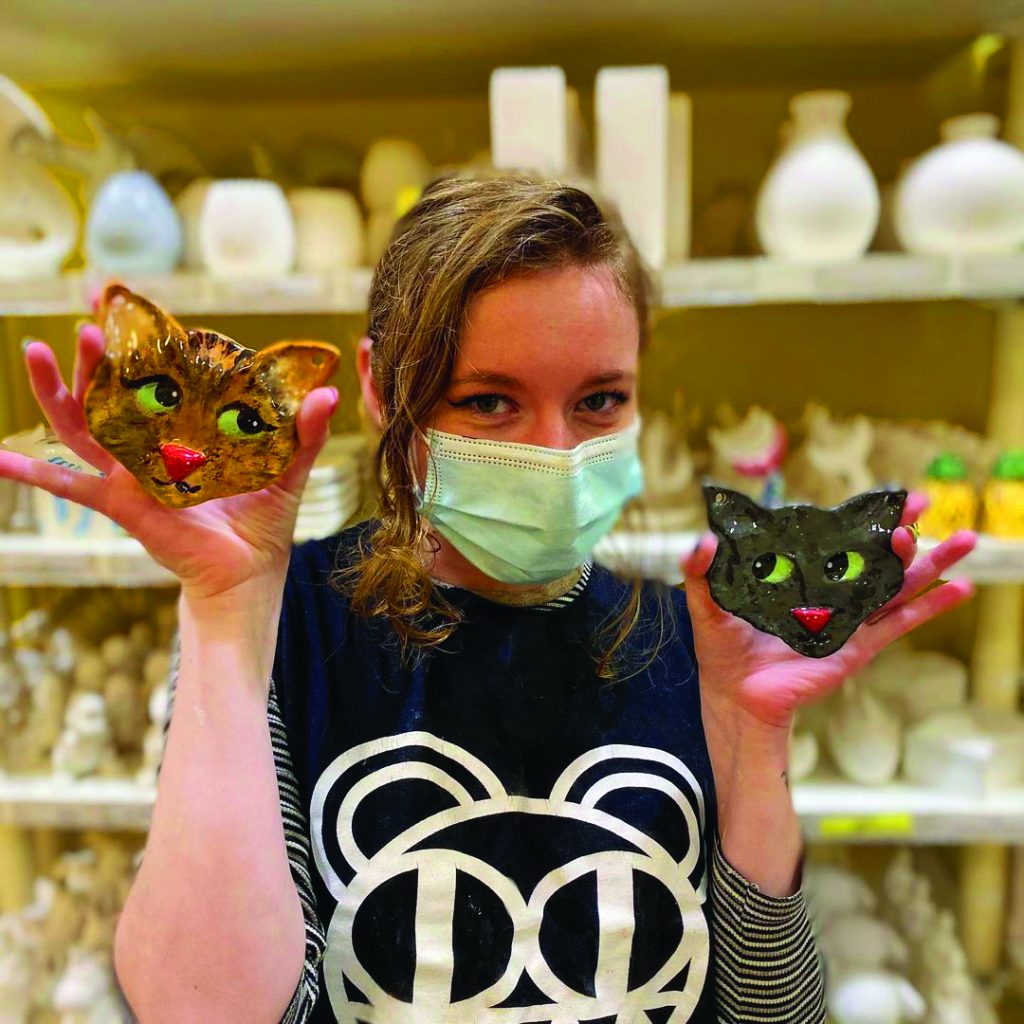
The Painted Pot 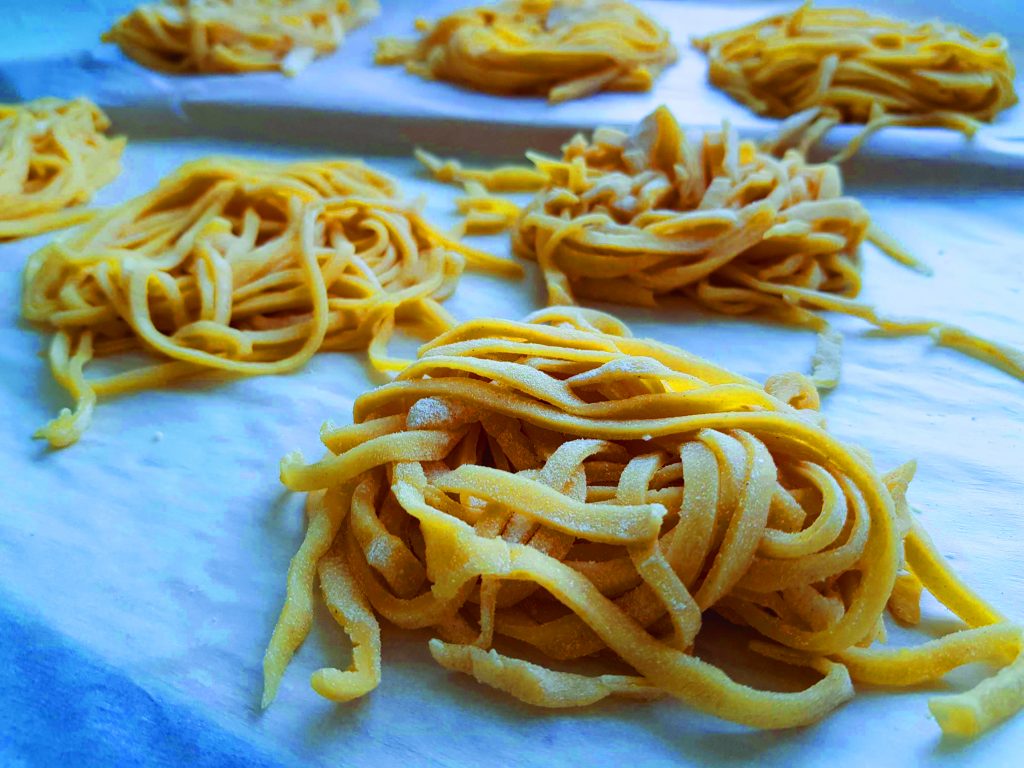
Fresh pastas from Russo’s, Caputo’s, and Mercado’s
Repair, Don’t Buy New
Our guide has had many suggestions for buying and exchanging second-hand, so what could be even better? Well, simply repairing what you already have!
New does not mean better. Transforming our “throw-away culture” to one that truly shows value, respect, and appreciation for material goods allows us to grow in sentiment and gratitude.
We are quick to throw away, often forgetting we can repair almost anything— from furniture, ceramics, handbags, clothing, shoes, jewelry, watches, or upholstery. Start tailoring your clothing, especially your thrifted purchases. When our items gain some wear-and-tear or need some fresh paint, it’s an opportunity to learn a new skill. Or you can turn to the trusted hands of a local professional. By investing in repair businesses or an individual who can help (through mutual aid networks), you can bring new life to your precious items while saving the planet.
Here are the local businesses we recommend for your repair needs:
- – A Tamer Restoration & Reproduction (465 Baltic St)
- – Trailer Park (77 Sterling Pl)
- – Alvarado Shoe Repair (366 9th St)
- – Bob’s Shoe and Leather Service (70 7th Ave)
- – Angelo’s Shoe Repair (268 14th St)
- – J&Y Interiors Decorator Workroom (552 5th Ave)
- – Mario’s French Cleaners (457 4th Ave)
- – Brooklyn Cleaner & Tailor (421 7th Ave)
- – Mike’s Dry Cleaners & Tailors (281 Flatbush Ave)
Ethical Food What we Brooklyners eat is deeply enmeshed with a complex global system of agriculture, land use, supply and demand politics, labor practices, distribution chains, and food waste— a network that is ultimately destroying the environment.So how can you help? While it is a difficult undertaking— and far too complex to explain in this guide— we suggest beginning by making an effort to learn where your food comes from.NYU Food Studies professor and author, Fabio Parasecoli writes, “The future of the food system is in our hands, not only as consumers but also as citizens.”When you can skip the superstores with foods that have traveled around the world to get to your plate, instead opt for locally sourced, grown, and baked foods. Freshly made pastries, bagels, and loaves of bread from independent bakeries, meats from butcher shops in a close relationship with the farms, or sustainable aquaculture fish markets. Look for organic or gourmet groceries— those making fresh pastas, sauces, cheeses, and other in-house goods.You may even opt for farm-to-table and vegan restaurant options.Park Slope also famously hosts amazing farmer’s markets with independent farms and businesses from the northeastern area. You can find anything from honey, to seasonal vegetables, fresh poultry, aged-cheeses, homemade soups, pickles, breads, and more!
Eating is perhaps the most political act we perform every day. To do so mindfully, sustainably, and ethically is a challenge— and often a luxury; however it is one we must strive for, both individually and as a community.
Begin your dedication to investing in a more sustainable food system with these options:
- – Down To Earth Farmers Market (4th St & 5th Ave)
- – The Greenmarket (Grand Army Plaza)
- – Brooklyn Grange (63 Flushing Ave)
- – Park Slope Food Co-Op (782 Union St)
- – Russo’s Mozzarella & Pasta (363 7th Ave)
- – Caputo’s Fine Foods (460 Court St)
- – Hiller & Moon (814 Union St)
- – Mercado Central NYC (354 Degraw St)
- – Green Ivy (244 4th Ave)
- – Awesome Organic Market (493 5th Ave)
- – Om Organic (414 Court St)
- – Pisces Fish Market (413 5th Ave)
- – Fjord Fish Market (249 5th Ave)
- – Atlantic Halal Meat (282 Smith St)
- – Slow Money NYC
- – Grown NYC Wholesale
Additionally, you can begin to grow your own foods at home, at community gardens, or through an urban farming organization. Our local schools are even teaching gardening and agriculture programs, like through the successful Edible Garden at PS 39.
- Growing Green SpacesEqual access to nature and green space is incredibly necessary for not only a healthy environment but a healthy life.There are so many positive benefits of having any green space, like a park, garden, or even potted flowers outside of apartment buildings. Daily time with nature reduces mental health symptoms, like depression, anxiety, and chronic stress, increases positive physical health and exercise, and promotes community safety and cooperation. Simply having more trees on your block will cool down the street, reduce climate change effects, cleans the air, prevents flooding, promote biodiversity, and control insect and rodent populations. Plus, public parks and gardens are one of the few remaining places you aren’t expected to spend money.You can even bring nature into your own home! There are houseplants for any kind of indoor space, budget, and schedule— very sunny, low-light, dry air, humid air, safe for pets, small potted, hanging plants, fast growing, or low maintenance. Houseplants boast being therapeutic to care for; known to increase your mood, attention to detail, energy levels, and mental health.
Author and activist, Nick Hayes reminds us how urban areas must fight for infrastructure, politics, and communities that encourage individual’s land rights and accessibility to green space, “We treat the countryside like it’s a museum, not a place you can feel at home in… You’re looking at nature like you might pictures in a gallery. What we need is to be in and amongst it.. The structure of the law needs to change to encourage people to engage with nature.”
As mentioned you can take a tremendous step towards sustainability by growing your own food. Try tomato plants in your backyard, lettuce on your front stoop, or herbs in your window. Of course, you can join one of the amazing community gardens in Park Slope— get your hands in the soil with t like-minded gardeners to learn and grow with!
Nature is the infinite healer! Caring for nature means caring for your mental and physical health, your community, and the whole environment.
Begin your gardening journey by picking up a houseplant at one of these nurseries. Or visiting a community garden near you.
- – Greenspace on 4th (207 4th Ave)
- – Greenspace at President Street (222 5th Ave)
- – Lincoln-Berkeley Community Garden (20 Lincoln Pl)
- – P.S. 39 Edible Community Garden
- – 6/15 Green (6th Ave & 15th St)
- – Wyckoff-Bond (195 Wyckoff St)
- – Pacific Bears Community Garden (150 Flatbush Ave)
- – ZuZu’s Petals (375 5th Ave)
- – Natural Spirit Corp. (157 7th Ave)
- – Planted IN Park Slope (429 Bergen St)
- – Nature Based Nursery (123 3rd St)
- – Natty Garden (636 Washington Ave)
Composting Many gardens also host composting sites! Here you can compost food scraps and other natural organic waste, which will be used to replenish and nourish the soil, decrease waste, and invest in Brooklyn’s green life. These programs are often run by volunteer-based organizations, like GreenSpaceNYC, BANG Land Trust, Brooklyn Queens Land Trust, or Prospect Park Alliance— so get involved!
Recycling Reduce, reuse, recycle! The phrase became popularized after Congress passed the Resource Conservation and Recovery Act in 1976. But did you know that the EPA reports 55% of recyclable waste still ends up in landfills? It’s shameful really. So how do we prevent this?
Read up on the NYC Department of Sanitation recycling guidelines; following rules like separating plastic items, dismantling and tying up boxes, and calling 311 for larger items can ensure that our throwaways are recycled and discarded properly.
You can also look for programs that specialize in recycling specific materials, like textiles, razors, batteries, electronics, makeup, and hardware.
Here are some such Brooklyn-based recycle programs:
- – Green Tree Textile Recycling (partnered with Down To Earth Farmers Market)
- – Wearable Collections Clothing & Shoe Reuse (partnered with Greenmarket)
- – Grow NYC (partnered with Greenmarket)
- – Le Nature Store (233 5th Ave)
- – The Environmental Recycling of NY (580 Degraw St)
- – Owl Plastics (882 3rd Ave)
- – Benson Scrap Metal Recycler (543 Smith St)
- – My Battery Recyclers (95 Union St)
Gift Giving We have all experienced it: receiving a gift that we ultimately do not need or want, then after not wearing that sweater for 2 years or letting that knick-knack collect dust, you finally decide it’s time to get rid of those presents that end up being junk. And don’t lie to yourself, you have probably given these well-meaning, but burdening gifts to someone too.Of course, you can regift, upcycle, exchange, or donate to places mentioned previously in our guide. But how can we stop this wasteful-cycle from happening?
- Here are some sustainable, waste-free, community and planet investing gift ideas:
- – Gift-certificates to a local restaurant
- – House-plant or flower arrangement
- – Concert or event tickets
- – Art or cooking or other in-person or online class
- – Museum or art exhibition tickets
- – Online video or streaming subscription service
- – Printed photo album or digital photo archive
- – Cleaning service or home-care help
- – A home-cooked meal or baked good
- – Painting or art piece from local artist
- – Used books or magazines
- – Fresh coffee beans, tea leaves, or herbs
- – Bottle of wine or liquor
- – Hand-made bath bombs, or body care products
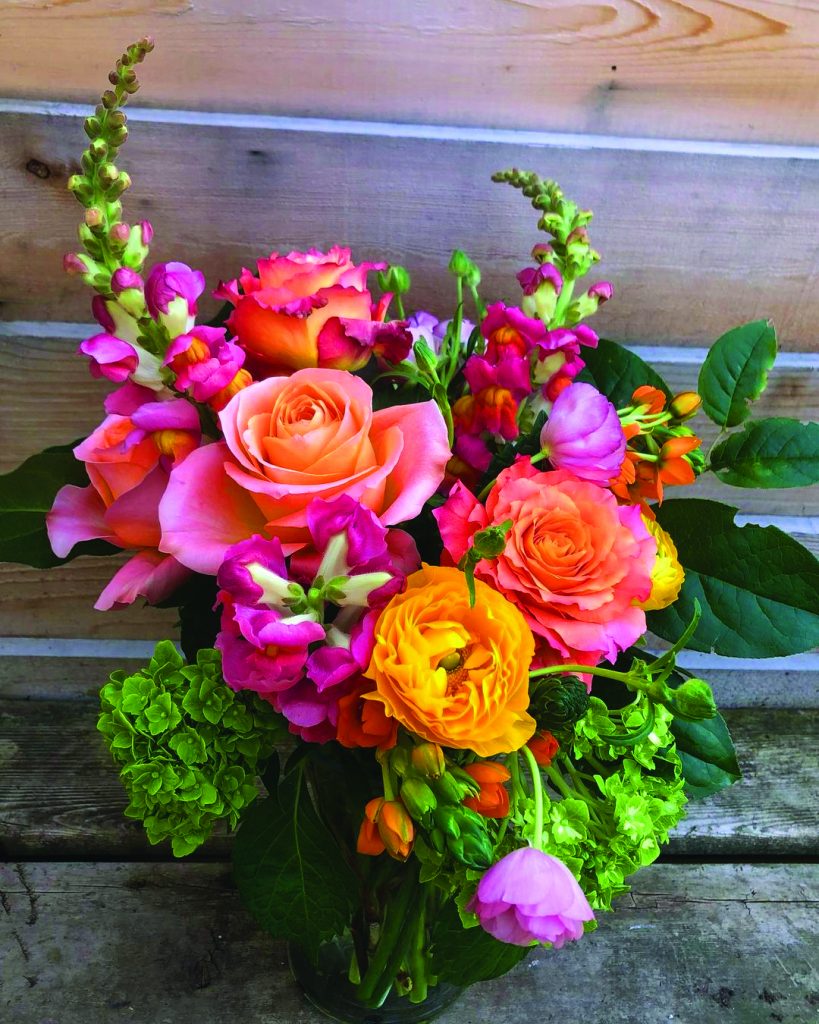
To complete this guide we want to add a quote from the book A History of the World in Seven Cheap Things by Raj Patel and Jason W. Moore, “This reimagination is a collective act of liberation. Never under capitalism have the majority been asked about the world we’d like to live in. To dream, and dream seditiously, is something that many humans need to practice… Restoration ecology offers joy, looking for working and living spaces to be filled with equitable chances of recreation.”
We hope you return to these articles as your guide to this recreation. That we all may begin shifting our daily practices, consumer habits, and mindset to a circular community-based network of mutual aid that reminds us of our connection with our neighbors, with our fellow humans and animals around the globe— and our life-giving connection with the natural Earth!
